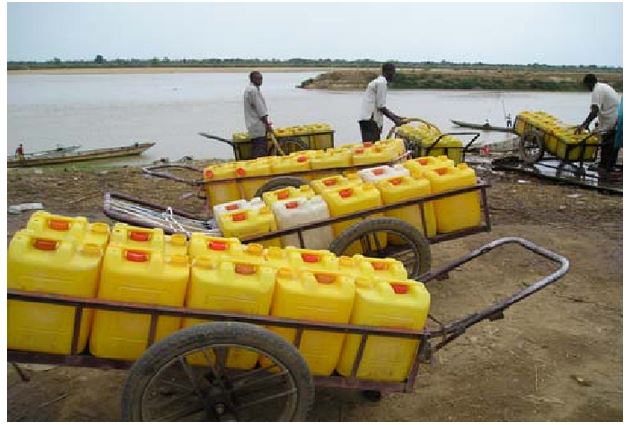Declare national emergency on water
Today, March 22, World Water Day will be commemorated through an online event that celebrates water and raises awareness of the 2.2 billion people living without access to safe water. The commemoration is about taking action to tackle the global water crisis and achieving Sustainable Development Goal (SDG) 6: water and sanitation for all by […]

Today, March 22, World Water Day will be commemorated through an online event that celebrates water and raises awareness of the 2.2 billion people living without access to safe water. The commemoration is about taking action to tackle the global water crisis and achieving Sustainable Development Goal (SDG) 6: water and sanitation for all by 2030.
The Day has as theme, Valuing Water. Indeed, water is central to life as it has enormous multidimensional and complex value for households, offices, food, culture, health, education, economics and the integrity of our natural environment.
- World Water Day: Over 60m Nigerians risk water-related diseases
- Insecurity: Nigeria’s corporate existence threatened — Northern govs
On this day, the United Nations Water Development Report will be released, just as it focuses on the campaign for the value of water, it is expected to recommend policy direction to all decision-makers.
Nigeria is blessed with water bodies, being surrounded by more than eight rivers, over 13 lakes, including Shiroro, Kainji, and over 11 freshwaters, yet there is a glaring shortage of safe drinking water for its over 200 million population.
There have been plans to provide safe water for all, but none has met the water needs of Nigerians. Ensuring sustainable access to potable water and basic sanitation was explicitly spelt out in Vision 20:2020, which was conceived by former President Olusegun Obasanjo in 2006 but launched with fanfare in September 2009 by late President Umaru Yar’adua. Not much was achieved with that.
Also, knowing that the combination of safe drinking water and hygienic sanitation facilities is a precondition for health and for success in the fight against poverty, hunger, child deaths and gender inequality, countries of the world, under the United Nations (UN) Millennium Development Goals (MDGs), pledged to reduce by half the proportion of people without access to safe drinking water and basic sanitation. Still no success.
Under the UN Sustainable Development Goals (SDGs), goal 6, is the achievement of universal and equitable access to safe and affordable drinking water for all by 2030.
Nigeria has fallen short of glory in all three national and UN goals. The result is that in an abundance of water bodies, Nigerians grapple with the unavailability of safe water.
Just as there is a scarcity of safe water in urban areas, the situation is worse in rural areas, where people source drinking water from the same river where they wash their clothes and take their bath. This development has led to the outbreak of diseases and sometimes deaths. In the cities, people in the middle to upper class provide their own water through boreholes. This proliferation of boreholes is dangerous for the environment as experts say it is partly responsible for the tremors witnessed in parts of the country. As the United Nations Children and Education Fund (UNICEF) notes, over 100, 000 children under the age of five die from water-borne diseases annually in Nigeria while adults face cholera outbreaks and other water-related diseases.
What is disheartening is that despite the budgets for the Ministry of Water Resources and Water Boards, the three tiers of government have failed to provide water for their citizens. Ordinarily, the fact that water supply is on the concurrent legislative list should bring the federal, state and local governments to work harmoniously to meet the water needs of the citizens.
Today is another reminder to the government that it is failing its citizens by its inability to provide safe water and that the consequences are dire. Poor access to water has a huge impact on the health of citizens, and as we know, a healthy nation is a wealthy nation.
The federal government should lead the states in declaring a national emergency in the supply of safe and drinking water. Individuals cannot continue to provide their own water through indiscriminate drilling of boreholes. The government must rise to its responsibility.
